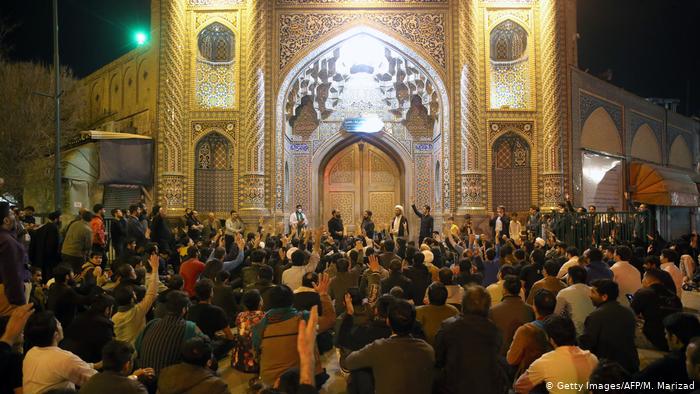“The issue is not about applying Shariah (Islamic jurisprudence), but is a matter of choice between a theocratic and a civil state; a choice between a clear and applicable civil state and an alternative whose adherents didn’t exert much effort to explain it even in their heads.”
Those lines were not written now, when Egypt is highly polarized between secular and religious forces that want to shape the new political system after 25 January, but rather by late secular intellectual Farag Fouda in his well-known book “The Absent Virtue”. Fouda wrote it in the eighties, when the state was warming up to launch a fierce battle against militant Islam.
Fouda (b.1946) is famous for his defiant views against Islamist forces, arguing that their calls to apply Shariah threaten the civility of the state. He also accused Islamic forces of manipulating religion and using it to achieve narrow political gains.
In “The Absent Virtue”, Fouda went further, attacking the Islamic Caliphate and portraying it as a despotic way of rule.
On 8 June 1992, Fouda was shot dead for his views by an extremist, who is allegedly illiterate. Two years later, another extremist almost succeeded in assassinating Noble Prize laureate Naguib Mahfouz.
Egyptian intellectuals currently advocating for a civil state fear that the scenario of getting rid of secular scholars might be repeated.
“Currently, indicators show that the rise of Islamists could change the whole scene in Egypt, creating a republic of fear in which the norms Fouda advocated are threatened. Islamists could easily turn into violence if their gains are lost or threatened,” says Shabaan Youssef, an intellectual, who writes about secularism and the cultural scene in Egypt.
Others agree saying that having an oppressive atmosphere would allow scenarios of attacking secular intellectuals to dominate.
“Killing people, who hold different opinions is not new. It’s common in history under oppression,” argues Sadek Naimy, a professor of French civilization.
Four months after former president Hosni Mubarak stepped down, the previously banned Muslim Brotherhood formed its first political party – “The Freedom and Justice Party”. Then the strict Salafi movement formed a legally recognized party as well.
These developments are triggering fear among secular forces and religious minorities.
“We are witnessing a whole scene that is changing dramatically. And it seems that the ideas that Fouda heralded are still being contested,” says Youssef.
This month, secular novelist Alaa Hamid accused Salafi groups of burning his home in the Delta Province of Gharbia.
In the “The Absent Virtue” Fouda heralded secularism as the best framework to protect personal and religious freedoms, arguing that Islam supports the idea of the civil state and secularism.
“The book was a whistleblower in devastated times. It shows how people used Islam to achieve narrow personal interests. Moreover, Fouda investigated Islamic history and argued that it was despotic in many periods because of the mixing of religion with politics,” says Youssef.
In a recent article, acclaimed writer and novelist Alaa al-Aswany argues that secularism is a movement that is hostile to all religions.
“This is a fatal mistake. The word almaniya is a good translation of the French word laïcité, which means that everybody who earns a living not from religion is secular. Secularism is everything that is not related to the church or mosque. By definition, you cannot say that secularism is anti-religion,” says Naimy.
Fouda’s 1985 book “Before the Fall” also discusses the “disastrous consequences” of applying Shariah in Sudan, basing his argument on restrictions placed on political and religious freedoms.
However, some argue that Fouda’s intellectual contribution to the current debate of secularism is contested.
“The idea of secularism exceeds the writings of Fouda. We have to be careful; the late Fouda was a public intellectual who adopted the idea of secularism. But Fouda did not establish or initiate a new secular vision. I mean he was not a leading intellectual at that time,” says Naimy.




